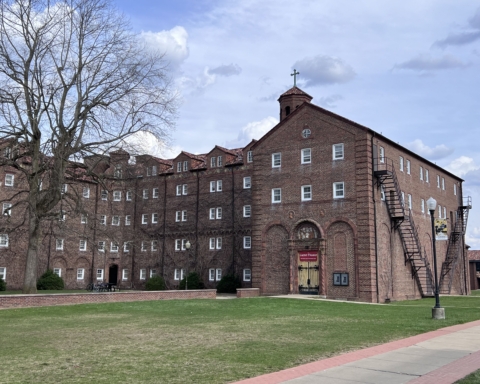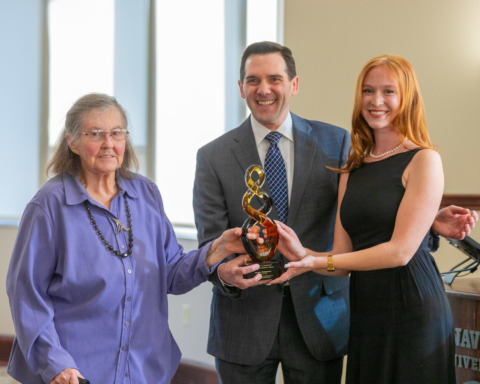By Natalie Forster, Staff Writer
After recent sexual assault allegations against Hollywood figures, questions are arising across the country about how sexual assault currently is and should be handled.
The St. Bonaventure University Gender-Based Discrimination and Sexual Misconduct Policy states, “At St. Bonaventure University, affirmative consent is outlined as a knowing, voluntary and mutual decision among all participants to engage in sexual activity.” All on-campus residents and staff are expected to conduct themselves in a manner that does not contrast with others’ rights.
The policy states, “Non-consensual sexual contact is any intentional touching, however slight, for purposed of sexual gratification or with sexual intent, directly or with any object that is without affirmative consent. Non-consensual sexual intercourse is any penetration, however slight, with any body part or object, or oral penetration by a sex organ of another person, without affirmative consent.”
Sexual exploitation, stalking, domestic violence, threats, intimidation, hazing, bullying and dating violence are all also under the category of sexual misconduct.
If there is a case on campus where someone is a victim, most employees, including teachers, are required to share one’s report with the Title IX Coordinator. Health care professionals are confidential resources that do not have to report. Reporting to university officials and law enforcement is strongly encouraged.
Anyone who needs to report misconduct can go directly to Safety and Security Services, residential staff, supervisors and Erik Seastedt, the Title IX Coordinator.
Students can report incidents on campus anonymously through Safety and Security by calling (716) 375-2525 or fill out a silent witness form on the MySBU website under the student services tab, then click on the “conduct issues and complaints” link to take you to a webpage with a link titled “silent witness program.” They will ask for the location, nature of the emergency and any other details that could be given.
When a case is reported, the Title IX Coordinator is made aware and information is gathered to decide whether or not to investigate further. If the need is deemed for further investigation, the coordinator will appoint investigators. If not, accommodations will be offered up to the victim, and a “No Contact” order may be requested. The Wellness Center has counseling services that can help victims through this troubling time.
The accused is believed to be innocent until proven guilty. The investigation is decided based on the likelihood of the event; if a case is determined to have happened, disciplinary actions as small as community service and a written warning to as big as expulsion and revocation of a degree may occur. The whole process generally takes 60 days or less.
While Bonaventure does try to keep students safe at all times, it is nearly impossible to stop incidents of sexual violence from ever occurring.
The Clery Act requires that universities that receive federal funding release an annual report on the crime rate statistics, including sexual assault.
This act helps in a way by making students more aware of on-campus crimes, yet it does nothing to prevent assault and other crimes from occurring.
Title IX also keeps students informed, yet it does not directly decrease the amount of sex crimes.
As long as people exist, crimes will remain prominent. It does not matter how one dresses or how drunk a person is. It does not matter if one stays in his or her dorm every weekend or goes out and parties. Some situations are more likely for crimes to occur than others, but sex crimes can affect anyone. Informing people about sexual misconduct, its consequences and options for victims can help.





